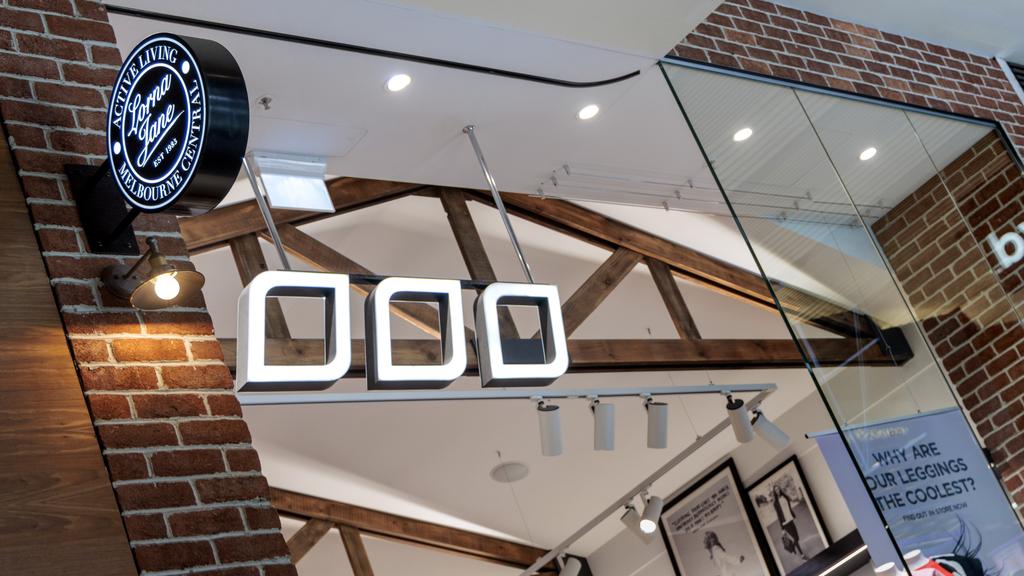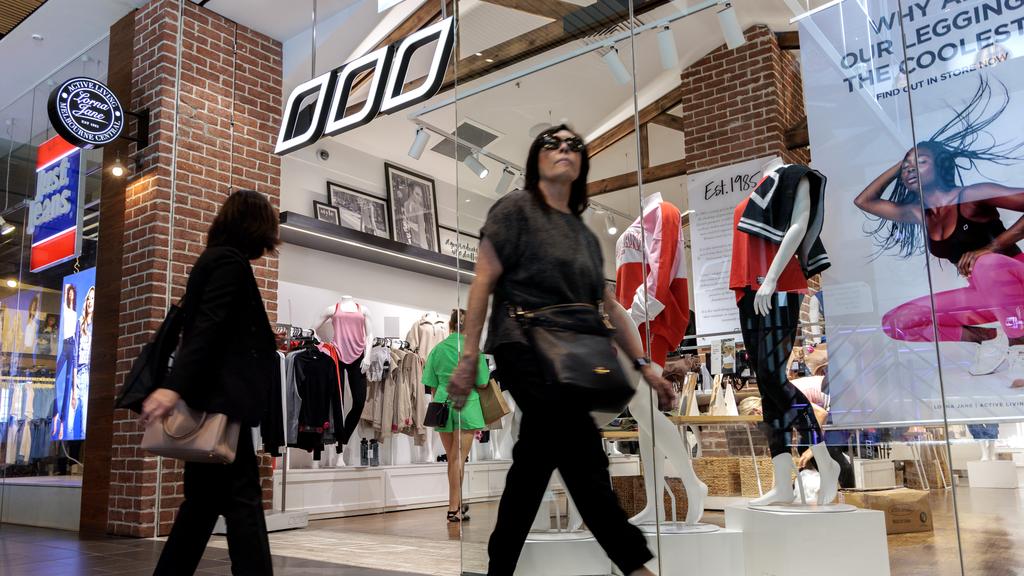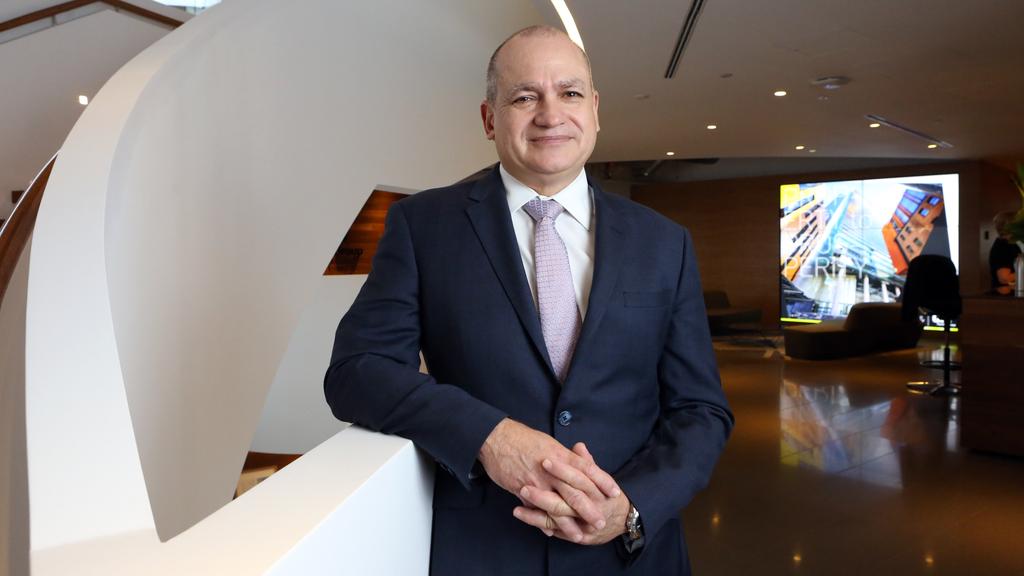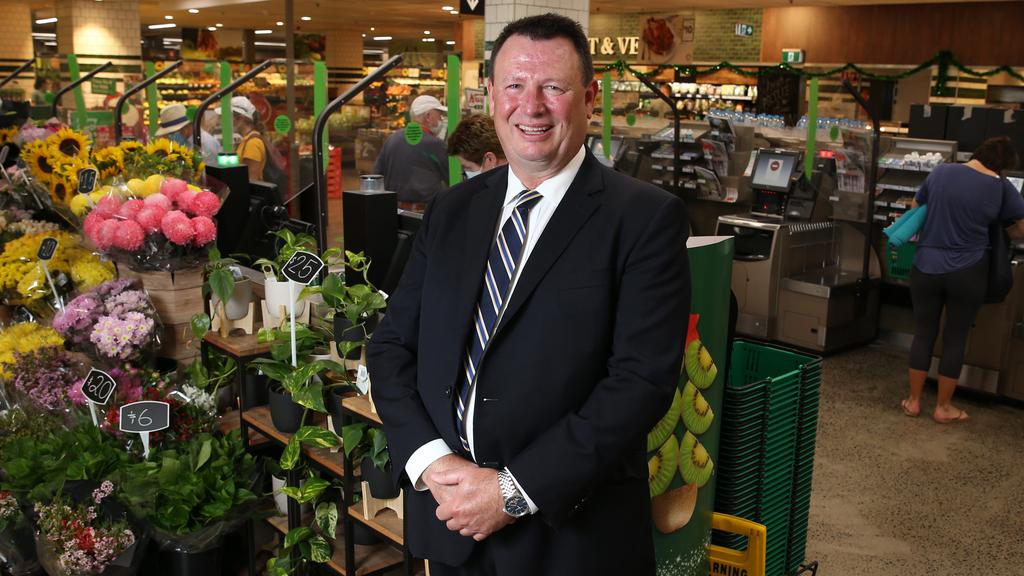Real estate trusts investment trusts hit turbulence during earnings reporting season as rates bite

Top listed landlords are currently in the midst of one of their toughest ever earnings reporting season. Picture: David Geraghty/NCA NewsWire
Australia’s top listed landlords are currently in the midst of one of their toughest ever earnings seasons, with office values sliding and the retail recovery faltering with more investors turning to the still-charging industrial sector.
The major real estate investment trusts are struck trading at deep discounts and are opting to hang on through the tough times rather than clear the decks with deep cuts to property valuations.
But even the biggest players are warning they’ll be hit by the slowing conditions and higher interest rates that have taken the steam out of the economy and hiked up borrowing costs, which is hitting trust distributions.
Most landlords are also clinging on to their assets rather than selling out at a low point in order to repair their balance sheets, with many hoping to keep their holdings intact and ride out the cycle.
But big players ranging from developer Lendlease, diversified giant GPT, to the smaller retail trusts have shown that turning around will be hard while there are so many pressures are in play.
“The outlook is on the downscale and, so, what we’ve seen is a flow-on effect to slightly lower forecasts and also lower earnings per security and distributions per security,” Sequoia Asset Management investment manager Winston Sammut said.

Top listed landlords are currently in the midst of one of their toughest ever earnings reporting season. Picture: David Geraghty/NCA NewsWire
Some stocks have been sold off as they cut their forecasts or showed that they were only just in the early stages of a recovery as difficult property conditions bite.
“Retail investors have probably read it negatively,” Mr Sammut said.
He said the listed sector was yet to face up to valuation problems, even though most stocks have already been sold off. “It means that there’s more pain to come in terms of valuations, but their prices are reflecting that already,” he said.
Mr Sammut expects further writedowns before investors come back. “There’s some mistrust in terms of putting more money in – you’ve got to have a level of conviction that the worst is over, but there is a reluctance for the managers to admit that.”
GPT Group chief executive Bob Johnston this week gave a frank assessment of the troubles in the office market, even as he argued that retail property was holding up.
“The office sector, however, remains challenging due to elevated levels of market vacancy, and the reduction in workspace requirements as a result of remote and hybrid working,” he said.

GPT Group boss Bob Johnston in Sydney. Picture: James Croucher
GPT is selling its 50 per cent interest in Australia Square in the Sydney CBD. The process is ongoing, but the company warned that investors remained cautious, with few big office deals tied down.
But GPT’s retail assets performed with Melbourne Central recovering with sales up 26 per cent on first half of 2022.
“While sales growth has slowed as higher interest rates flow through to the consumer, unemployment remains low, population growth is rebounding, and house prices have stabilised which should provide a level of support for retail sales,” he said.
GPT’s logistics portfolio also provided a guide to other industrial owners, as high tenant demand and low vacancy had driven rents up and developments also surged.
The veteran CEO argued there may now be a pause after the rapid switch in economic conditions over the past twelve months, in which the Reserve Bank aggressively hiked interest rates.
“It would appear that we are now close to the end of the rate rising cycle, with the economy slowing and inflation trending lower,” he said.
“While the full impact of the rate rises is yet to flow through, unemployment remains low and house prices have stabilised, which should provide support to our retail and logistics businesses.
“While retail sales are expected to moderate as the economy slows, our portfolio is well-placed with high occupancy, sustainable occupancy costs and fixed rental increases,” he said.
Region CEO Anthony Mellowes said the operating performance of its portfolio of convenience-based retail properties remaineds strong, driven by solid leasing performance and high occupancy.
It delivered 4.5 per cent sales growth across all categories with supermarket sales increasing by a steady 3.4 per cent as cost of living pressures and lower consumer sentiment sees Australians prioritising life’s essentials with our speciality tenants remaining resilient.
“With earnings growth being constrained through headwinds created by the increasing cost of debt, we will continue to focus on our generating sustainable net operating income from our core business through driving increased rental income, leveraging our scale to maintain controllable property expenses,” he said.

SCA Property boss Anthony Mellowes in Sydney. Picture: Britta Campion/The Australian
UBS analysts said that Region had produced an in-line result, but guidance was about 4 per cent below expectations on the back of higher debt costs and property expenses were also up.
Charter Hall Retail CEO Ben Ellis said the landlord’s blend of long weighted average leased and convenience retail assets was producing meaningful income growth for investors as the fund boosted distributions by 5.3 per cent. But its guidance was below consensus expectations, and debt costs are also a major headwind.
Parts of the reporting season appear to be playing out according to expectations.
UBS analysts said before it kicked off that they anticipated conservative guidance with top companies likely to be cautious on interest rates, as well as pending deals and developments. They warned that expenses would be elevated but wanted companies to show some progress in selling unwanted assets.
While the analysts said that interest expenses may be subsiding as a headwind, they warned a consumer spending crunch had started, though this may not show up in this season.
They were said the office stocks showed apparent value, but there were few catalysts, a shallow bid for assets and continued concerns around longer term structural issues such as work-from-home and cyclical leasing drivers like higher unemployment.
UBS nominated logistics as a preferred area with very strong fundamentals, but said it was monitoring any signs of growth moderating.
They warned investors positioning in funds managers about their lacklustre equity flows and limited gearing capacity.
“While we think it is too early to be overweight REITs, we expect renewed investor interest heading into a rebated fiscal 2024 as income starts to look increasingly defensive and the pace of valuation declines slows into June 2024,” UBS said.
But more action is needed in direct markets – particularly for big assets required to make a dent in fixing balance sheets. “We anticipate ongoing valuation declines through December 2023, noting performance is typically poorest and valuation gaps the widest at the start of asset devaluation phases,” UBS said.
Morgan Stanley analysts said that stocks with a steady outlook may command a premium, at least in the short term. They recommended retail landlords such as Scentre and Vicinity and industrial powerhouse the Goodman Group as among the best places to hide for a stable August.
“Sales growth is admittedly softening based on comments from retailers, but we believe it may be premature for investors to hold bearish views on the landlords,” they said.
But they also cautioned that funds managers could face a year of redemptions, revaluations, and slow deal flow.







